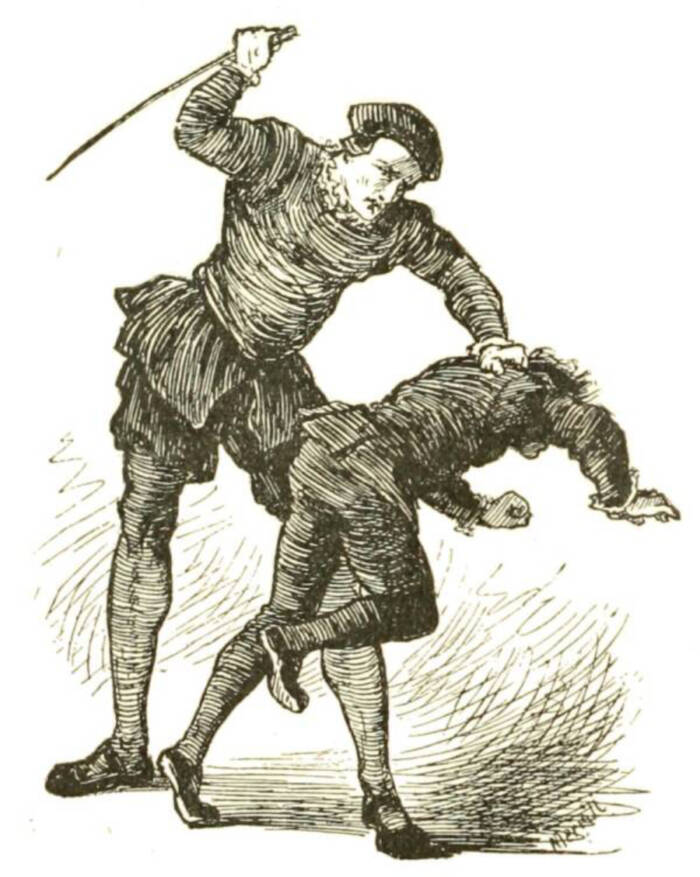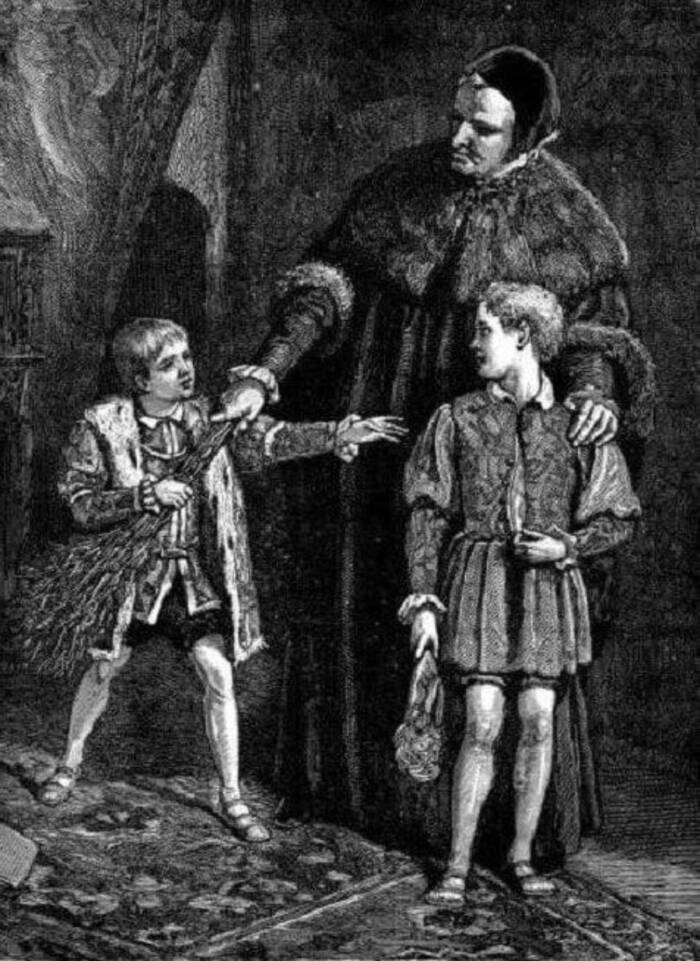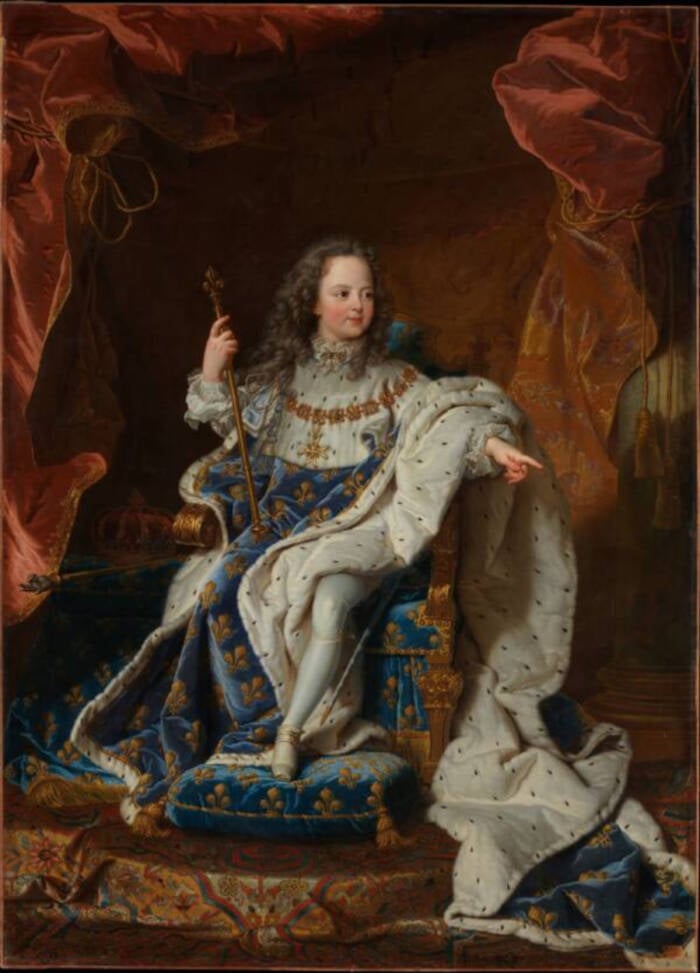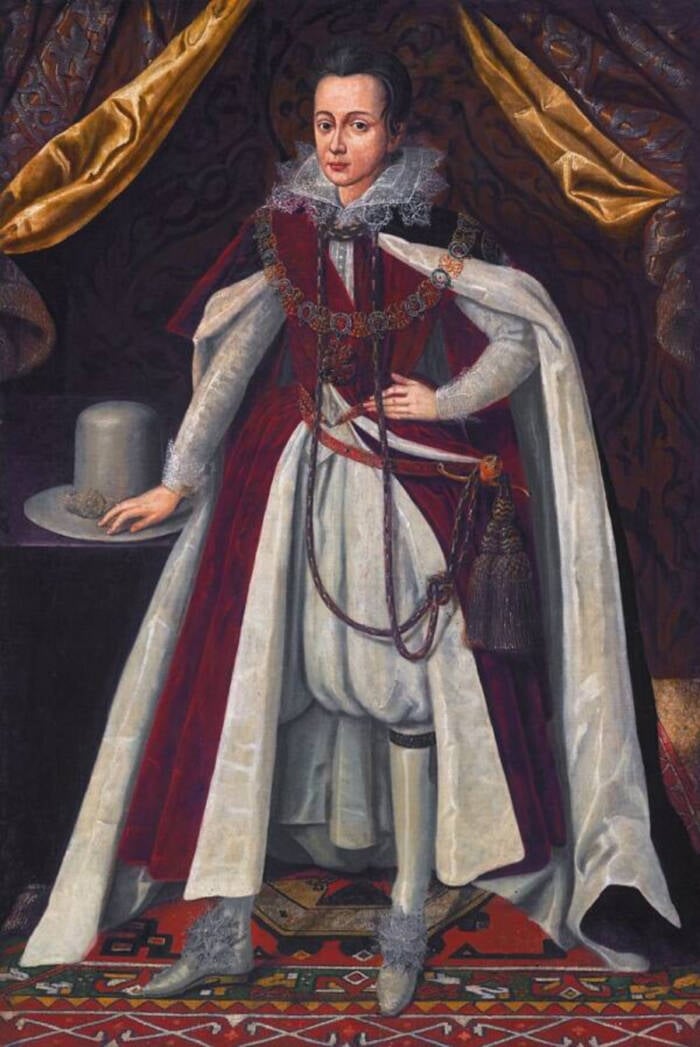Though some accounts claim that whipping boys were used by royal families as a proxy for young princes who could not be physically punished, many modern historians say they never actually existed.

Public DomainThere’s some debate about whether whipping boys actually existed.
The phrase “whipping boy” is sometimes thrown around today to indicate someone blamed for the faults of others. But does this expression have historical origins? Did these boys really exist?
It depends on who you ask. Some have stated that such boys once existed in Europe and China when tutors were forbidden from administering corporal punishment to young princes. Instead, the “whipping boy” would be punished for the crimes or faults of the royal boy.
But though the term does appear sporadically in literature and history, it’s unclear how often royal families used such boys — if at all.
What Is A Whipping Boy?
Hundreds of years ago in Europe, tutors were tasked with overseeing and educating their young charges. But royal tutors had a more complicated job. Because princes were considered to be imbued with “divine right,” tutors had few options for punishing a boy who misbehaved.
According to Ancient Origins, common tutors of the day would normally turn to some kind of corporal punishment. They might have their students kneel on corn cobs, or they might use a switch to whip their palms, backs, or buttocks.

Public DomainAn 1882 painting of “Edward VI and his Whipping Boy.”
But when it came to reprimanding princes, tutors’ hands were tied. As Desiderius Erasmus noted in two of his 16th-century treaties Education of Christian Prince and Declamatio de Pueris Statim ac Liberaliter Instituendis, tutors were forbidden from physically punishing a royal prince.
That’s where the idea of a “whipping boy” comes from. Because tutors could not touch their royal charges, it was thought that royal families would hire a whipping boy instead. When the prince misbehaved, the whipping boy would suffer the punishment. This would allow the tutor to avoid hitting the prince and would — hopefully — inspire compassion and sympathy in the prince.
But is there any evidence that this actually happened?
Tracing The Origins Of The Term
The term whipping boy appears to have emerged in the 17th century. Grunge and Indy 100 note that its first documented use was in 1605 when it appeared in Samuel Rowley’s play When You See Me, You Know Me.
From that point on, references to these boys — or merely to boys who endured punishment in lieu of their young royal lieges — appear sporadically in both history and literature.
In the 18th century Marie, marquise du Deffand described how another boy would be punished for young Louis XV’s wrongdoings (other accounts at the time mention that this did not seem to deter the prince). Similarly, the future tenth Emperor of the Qing Dynasty in China, Guangxu, allegedly had a boy called “ha ‘hachutsze,” who would be punished instead of him.

Public DomainFrench prince Louis XV was one of the European royals who purportedly had a whipping boy punished for his wrongdoings — though this allegedly did nothing to stem Louis’s bad behavior.
But perhaps the best-known usages of the term came from literature. In 1822, Sir Walter Scott published The Fortunes of Nigel, which also included a character who acted as a whipping boy to young James VI of Scotland.
“[He] appalled the very soul of the youthful King, by the floggings which he bestowed on the whipping boy, when the royal task was not suitably performed,” Scott wrote.
In 1881, Mark Twain published The Prince and the Pauper, which described how English princes Edward VI and Charles I could not be punished by their tutors. Instead, they had a whipping boy named Humphrey Marlow.
“Of a surety thou must remember me, my lord,” Marlow tells the princes in Twain’s story. “I am thy whipping boy.”
Indeed, some historical accounts suggest that English princes like Edward VI and Charles I did indeed have whipping boys. But are they accurate?
Did Whipping Boys Really Exist?
Despite historical and literary evidence, most historians don’t believe that boys were actually used to absorb punishment for more “divine” princes. Charles Skidmore, the author of Edward VI: The Lost King of England, adamantly denied it according to The Times.
He said that “there was no primary evidence of royal whipping boys and the role probably never existed.”
Leanda de Lisle, who wrote Charles I: The White King, agrees that primary evidence about whipping boys is difficult to find. In an article for Aspects of History, she cites the lack of contemporary sources about whipping boys, suggesting that the idea originated solely from Rowley’s play.

Public DomainA young Charles I of England, one of the English princes who was alleged to have had had a whipping boy.
“The stories of Charles I’s and Edward VI’s whipping boys are, I believe, based on nothing more than a literary phantom,” de Lisle wrote. “It was conjured in the aftermath to the English publication of James’s tracts on divine right kingship, with their assertion that no subject could legitimately raise their hand in violence against God’s anointed, and this is their true origin.”
She added: “The stories of the Tudor and Stuart whipping boys has gained acceptance amongst historians simply by repetition, and is a good example of how myths come to be seen as fact and how fake history is born.”
As such, it’s unlikely that real-life boys were ever used to deflect punishment for young royals. But whipping boys certainly exist today — though fortunately only as a metaphor.
After reading about the murky history of the term “whipping boy,” discover the surprising origins of some other common phrases like “crossing the rubicon” and “rule of thumb.”





